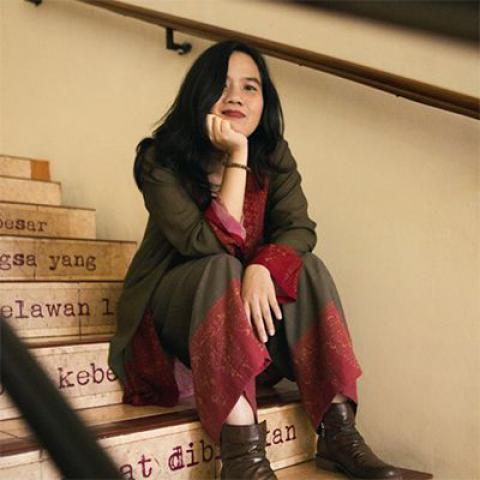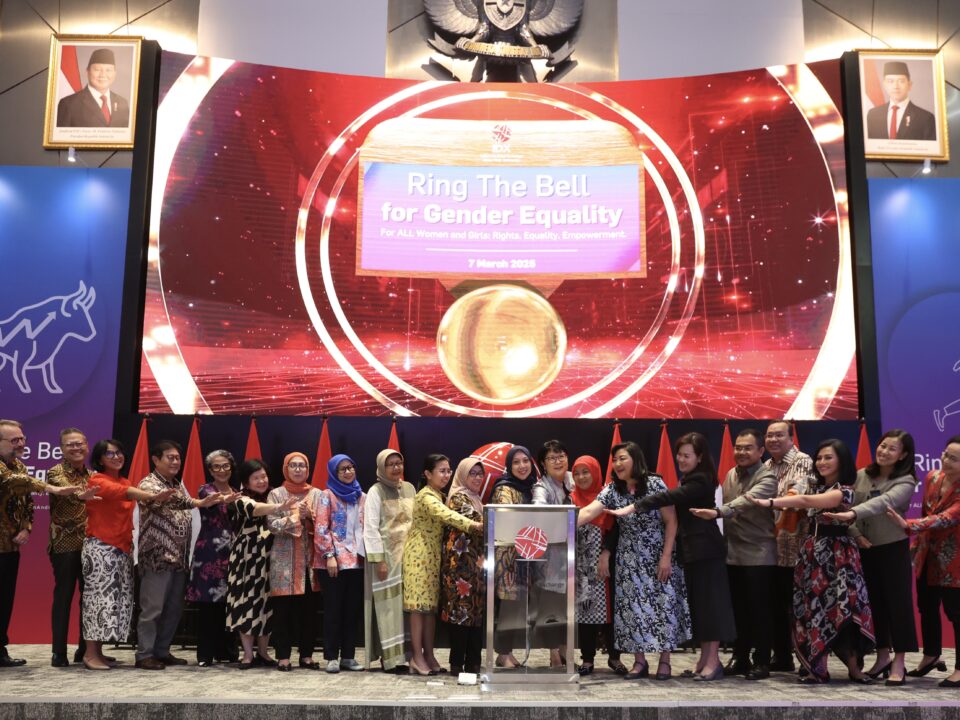
Devi Asmarani: Socialize Feminism Through Media
December 24, 2023
Labor Participation Rate in Indonesia, Is Still Dominated by male
December 24, 2023Struggling with the world of women for more than ten years, Mariana Amiruddin, commissioner of the 2015-2019 National Commission on Violence Against Women, is still often worried about the tendency of the people, who do not understand the needs of women, thus perpetuating patriarchy.
Met on the sidelines of a discussion on the Women’s Concert for Humanity at a restaurant in Cikini, Mariana explained that she had to come to social events often so that friends felt support from the government. As a representative of the National Commission on Women attending the 1965 International People’s Tribunal in The Hague, Netherlands, in November 2015, Mariana had a fairly close relationship with women survivors of the 1965 tragedy and their support communities. The main star of the Women’s Concert for Humanity Concert was Dialita, a choir of women who survived the 1965 tragedy from the first or second generation. Komnas Perempuan itself has a Let’s Talk Truth movement, one of which focuses on the history of 1965.
The concern about the issue of women actually began in middle school when Mariana witnessed sexual abuse experienced by her friend. “I immediately got angry and went berserk,” Mariana said. The incident became relevant when Mariana read the book A Memoar of Doctor of Women and Girls at the Zero Point by Nawaal El Saadawi in college. This author succeeded in arousing Mariana with the authority of the female body. Why does the female reproductive organs that God has given become objects of sexual violence. From there, his thoughts began on issues of feminism and women’s objectivity.
Double Burden for Women
Double burden is a workload that is heavier and accepted by one type than the other sex. Pudjiwati in her book entitled The Role of Women in Rural Community Development states that as women, there are two roles that must be performed, as housewives who reproduce work to support men seeking income and as income earners who directly generate income.
The double burden is a scourge for all women in all walks of life and often makes a dilemma of the necessity to choose between family or career. “Early in the career, women and men have the same needs. But when married, their needs change. Especially women who become mothers. “You have to try three to four times harder so you can glide as fast as men,” Mariana explained. At this stage the environment should understand the needs of working mothers.
“Before making a policy at work, we must first know the needs of women. What is needed during the reproductive period, such as menstruation, pregnancy, childbirth and breastfeeding. This policy can be consulted with doctors or female health experts related to reproduction.”
The Importance of Understanding Women’s Needs
Female labor in Indonesia according to the Central Bureau of Statistics in 2018 reached 55.4% of the total workforce in Indonesia, which amounted to 133.94 million people. This number should be an understanding of the company that women’s needs should be anticipated for worker productivity. “Do all women want to be made at home? (Not working) This country will lose. The company also lost. We better provide facilities that support women during reproduction,” Mariana said.
For Mariana, providing a daycare and lactation room is an obligation for the company. “Like a toilet, it is always available in restaurants and offices. Because everyone knows, humans need to go to the bathroom. How do you see the needs of women as human beings during the reproductive period like someone in the toilet? When it’s normal, people will ask, ‘Why isn’t there a place to breastfeed? Why isn’t there a daycare center? ‘Our biological understanding is currently only a matter of defecating and small.”
Mariana hopes that in the future everyone can see the needs of women during reproduction as a biological need, not a privilege. “This is because we are accustomed to being dominated by men,” Mariana said. If awareness has arisen, Mariana believes that the facilities and the environment will be better prepared and then the burden of women workers will be much reduced.





